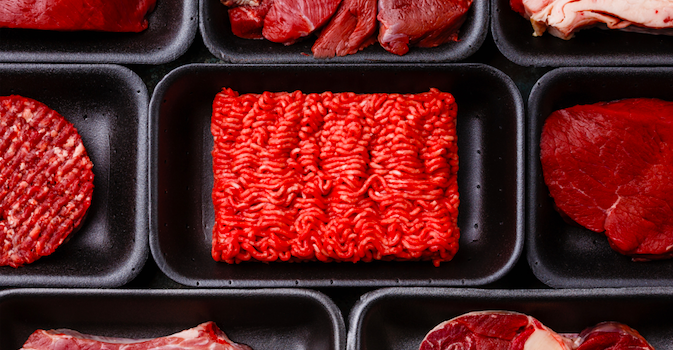
Vegetarianism is on the rise in the UK and across the world. More than 5% of the UK’s population is vegetarian and the Vegan Society estimates that there are considerably more than half a million vegans in the UK. This is a huge increase on the 150,000 following a ‘plant-based’ diet in 2006. Where the lifestyle used to be mainly driven by ethical concerns, huge numbers of people are now making the switch because of a new understanding of the environmental impact of the meat and dairy trades.
What are the impacts of intensive animal farming?
The full extent of environmental damage caused by the intensive farming of animals for meat is a source of much discussion. Some people believe that we are in the midst of an environmental crisis, while many think eating meat is an inevitable part of 21st century life. The FAO (Food and Agriculture Organisation of the United Nations) recently estimated that livestock production is responsible for 14.5 per cent of global greenhouse gas emissions. Other scientific studies organisations claim this figure could actually be as high as 51 per cent.
Amount of land and grain used
Farming livestock (especially cows) for meat requires vast amounts of land. The world’s population is increasing. With a finite amount of space available for global food production, considering the potential yield of a piece of land (i.e. the amount of food that can be produced there) is really important.
The bottom line is that the rate at which animals convert plant protein and energy into meat protein and energy is inefficient. Producing 1kg of beef requires up to 12kg of grain to feed the cattle. The uncomfortable truth is that people who eat large amounts of meat consume a disproportionate amount of the world’s available nutrients. It is estimated that the amount of cereal fed to cattle, pigs and chickens worldwide could feed the 800 million people currently suffering from hunger and malnutrition, three times over!
Pollution
Many scientists agree that the intensive farming of animals for food produces more carbon emissions than vehicles, contributing heavily to global warming. Cows contribute 3 percent of Britain’s overall greenhouse gas emissions and 25 to 30 percent of its methane. A 2014 study carried out by Oxford University scientists found that the diets of people who ate more than 100g of meat a day resulted in 7.2kg of carbon dioxide emissions. Vegetarian and pescetarian diets, on the other hand, were responsible for about 3.8kg of CO2 per day, and vegan diets only 2.9kg.
But it’s not just the air that is polluted by meat farming. The huge amount of animal sewage generated takes its toll as well. Runoff is one of the leading causes of pollution in rivers and lakes, threatening the delicate ecosystems that exist there. Groundwater is contaminated with bacteria and viruses.
Deforestation
Because rearing cattle requires lots of flat land, vast areas are cleared in order to be used in this way. Deforestation for cattle ranches threatens biodiversity, because it changes the environment so that certain species of plants, animals and insects can no longer survive. In addition, fewer trees means less capacity to filter toxins from the air. Even the Amazon rainforest is not safe from deforestation, and the ripples of this could be felt for years to come.
Should we stop eating meat?
It might be time to confront the uncomfortable truths of our global obsession with meat. The environmental arguments against our levels of meat consumption are pretty convincing, but there’s also its role in current obesity levels, and the separate – but very dangerous – matter of antibiotic resistance caused by intensive cattle rearing.

Realistically, it would be mad to consider the possibility of everyone going vegetarian – but if people made an effort to think about their consumption, or to incorporate some meat alternatives into their diet, it could easily signal a shift to a more responsible way of life. With vegetarian food more widely available than ever, it’s easy to find other stuff to eat! It’s also worth thinking about our reliance on certain types of meat – farming red meat takes up 28% more land than farming either pork or chicken.
Next time you think twice about picking up a burger, you’ll know you’re doing your bit to preserve our planet, and there are proven health benefits too!
Think we missed something? Do you have a different opinion?
Comment below to get your voice heard…













qwerty
qwertyuiopasdfghjklzxcvbnm
Meat is great